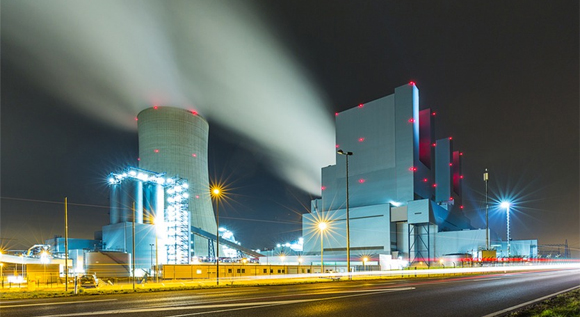Reducing the burden on companies in terms of carbon pricing
There are plans to reduce the financial burden faced by companies following the introduction of carbon pricing in the heating and transport sectors in 2021. Firms that are put at an international competitive disadvantage could receive compensation, a large part of which would however have to be invested in climate change mitigation.
 © fotolia.com/rcfotostock
© fotolia.com/rcfotostock
On 1 January 2021, Germany introduced a carbon price in the heat and transport sectors, both of which are responsible for a substantial amount of greenhouse gas emissions. The price has to be paid by companies that trade in heating oil, natural gas, petrol and diesel. Under the new national emissions trading system, they are required to buy emission allowances for the GHG emissions caused by these fuels. Thus, GHG emissions generated while heating or driving are given a price. The Act on Emissions Trading in Fuels, which is part of the 2030 Climate Action Programme (in German only), defines the shape of the national emissions trading system. Going forward, the aim is to incentivise the development of more climate-friendly technologies and products. As a result, the heat and transport sectors are to reach their climate targets in a way that is efficient and socially acceptable.
Climate action and economic development to go hand in hand
In order for German firms to remain internationally competitive despite the carbon price, the Federal Government issued an ordinance on 31 March 2021 to introduce compensation measures for the carbon pricing mechanism in national fuel emissions trading. Their aim is to prevent carbon leakage, i.e. the outsourcing of production to countries with lower environmental standards. Outsourcing is problematic – not only in terms of economic policy, but also from a climate action perspective: often, manufacturing is relocated to countries with lower climate change mitigation standards than Germany.
In future, however, companies are to receive financial compensation if carbon pricing puts them at a competitive disadvantage on international markets. In return for these payments, they have to commit themselves to using an energy management system. Also, from 2023 they will be required to invest in economically viable climate change mitigation measures as identified by their energy management system. Such investments will have to amount to at least 50% of the compensation payment, or 80% from 2025 onwards. Transitional rules are to ensure that smaller companies in particular will have enough time to prepare for the new system.
The Cabinet’s ordinance of March 2021 implements the resolution issued by the Federal Government in September 2020 on key points for the safeguarding of companies’ competitiveness. At the urging of the Economic Affairs Ministry, the ordinance now generally provides for higher compensation payments than the intial draft. In particular, the cut in the EEG surcharge is not to be counted towards the compensation. Subject to approval by the Bundestag and by the European Commission – in terms of state-aid rules –, the ordinance can finally enter into force.
Further information
- Press release by the Federal Ministry for the Environment, Nature Conservation and Nuclear Safety: 'Compensation measures for carbon pricing in national fuel emissions trading to boost climate action' (in German only)
- Press release by the Federal Ministry for Economic Affairs and Energy: 'Federal Cabinet adopts higher carbon price, together with relief measures in terms of electricity prices and for commuters' (in German only)
- Article by the Federal Ministry for Economic Affairs and Energy: 'The EU emissions trading system – essential for the energy transition'

